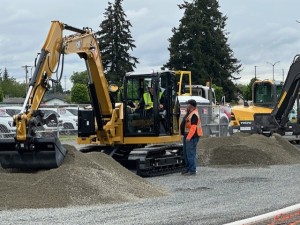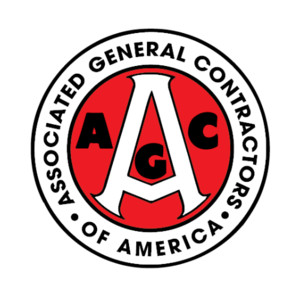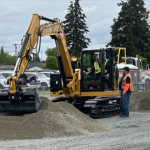Building Brotherhood: How Construction Workers Can Strengthen Camaraderie on the Jobsite
 The jobsite isn’t just a place of work—it’s a dynamic environment where collaboration, trust, and morale can make or break a project. Construction work is physically demanding, often high-stress, and requires intense coordination among crews. In this setting, camaraderie isn’t just a “nice-to-have.” It’s a cornerstone of safety, productivity, and job satisfaction.
The jobsite isn’t just a place of work—it’s a dynamic environment where collaboration, trust, and morale can make or break a project. Construction work is physically demanding, often high-stress, and requires intense coordination among crews. In this setting, camaraderie isn’t just a “nice-to-have.” It’s a cornerstone of safety, productivity, and job satisfaction.
But how can construction workers build that sense of brotherhood (and sisterhood) that keeps morale high and projects moving smoothly? It starts with daily habits, intentional actions, and a culture that values every worker.
Here’s how to build camaraderie on the construction site—brick by brick.
1. Start the Day with a Team Huddle
A simple morning meeting can set the tone for the entire day. Whether it’s a five-minute safety talk or a more detailed planning session, this daily ritual creates a shared space where everyone’s voice can be heard. It reminds the crew that they’re in it together, facing the same goals and challenges.
Use this time to:
Review tasks and roles
Address safety concerns
Celebrate wins or milestones
Encourage input and questions
Over time, this consistent communication fosters trust and respect across all roles and experience levels.
2. Create a Culture of Respect
Camaraderie starts with how workers treat each other. The construction industry has come a long way, but there’s still work to be done in ensuring a culture that values respect, diversity, and teamwork.
That means:
Treating every worker—no matter their role or background—with equal respect
Being inclusive of younger workers, women, and workers from different cultural backgrounds
Calling out toxic behavior or bullying early
When people feel respected, they’re more likely to contribute fully, support their teammates, and take pride in the job.
3. Look Out for One Another
One of the strongest bonds on a jobsite is built around safety. Construction work can be dangerous, and nothing strengthens camaraderie like knowing your crew has your back.
Encourage a “see something, say something” culture—not as tattling, but as watching out for each other like a family would. Celebrate safe practices and recognize workers who consistently set a good example.
Remember: when people know their crew cares about their wellbeing, loyalty and camaraderie naturally grow.
4. Eat Together When You Can
Sharing a meal is a powerful way to build connection. Lunch breaks or post-shift BBQs are a chance for people to relax, talk about life outside of work, and get to know each other as individuals—not just coworkers.
While it’s not always possible on tight schedules, consider:
Organizing a team lunch every few weeks
Starting a “Friday cookout” tradition
Rotating who brings breakfast or coffee
Even small moments of shared downtime can help foster friendship and mutual appreciation.
5. Celebrate Milestones and Achievements
Recognizing accomplishments, both big and small, helps create a positive jobsite culture. From completing a major phase of a project to someone hitting their 10-year work anniversary, taking a moment to celebrate makes everyone feel valued.
Some ideas:
Shout-outs during morning huddles
A small bonus or gift card
Recognition boards in the break area
Posting crew wins on social media or internal newsletters
Acknowledgement builds morale—and when morale is high, camaraderie follows.
6. Mentorship and Skill-Sharing
More experienced workers can build bonds by mentoring newer team members. When senior crew members invest time in teaching skills and sharing wisdom, it not only helps the team succeed—it also creates lasting respect and connection.
Encourage a culture where asking for help is seen as a strength, not a weakness. Pairing newer workers with mentors can ease their transition and deepen the overall team dynamic.
7. Lighten the Mood with Humor and Traditions
Every crew has its own unique energy. Humor, inside jokes, nicknames, and light-hearted banter are often part of the jobsite experience. These shared moments create a sense of belonging and identity within the crew.
Traditions—like “rookie of the week” or a gag trophy passed around—can add fun and deepen bonds. Just make sure it’s always good-natured, inclusive, and doesn’t cross the line into hazing or disrespect.
8. Leadership Sets the Tone
Foremen, supervisors, and site managers have a huge impact on the culture of the crew. When leadership models respect, encouragement, and inclusivity, those values tend to spread throughout the team.
Encourage leaders to:
Be approachable
Listen actively
Resolve conflicts fairly
Show appreciation often
Strong leadership doesn’t just manage the crew—it unites it.
When construction workers build camaraderie, they don’t just complete a job—they create a community. Teams that trust and support each other are more productive, safer, and more satisfied with their work.
Camaraderie doesn’t happen by accident. It takes intentional effort, day after day. But the payoff is clear: a stronger team, a better jobsite experience, and a workforce that looks out for each other long after the last nail is driven.
Because at the end of the day, construction isn’t just about buildings—it’s about the people who build them.








